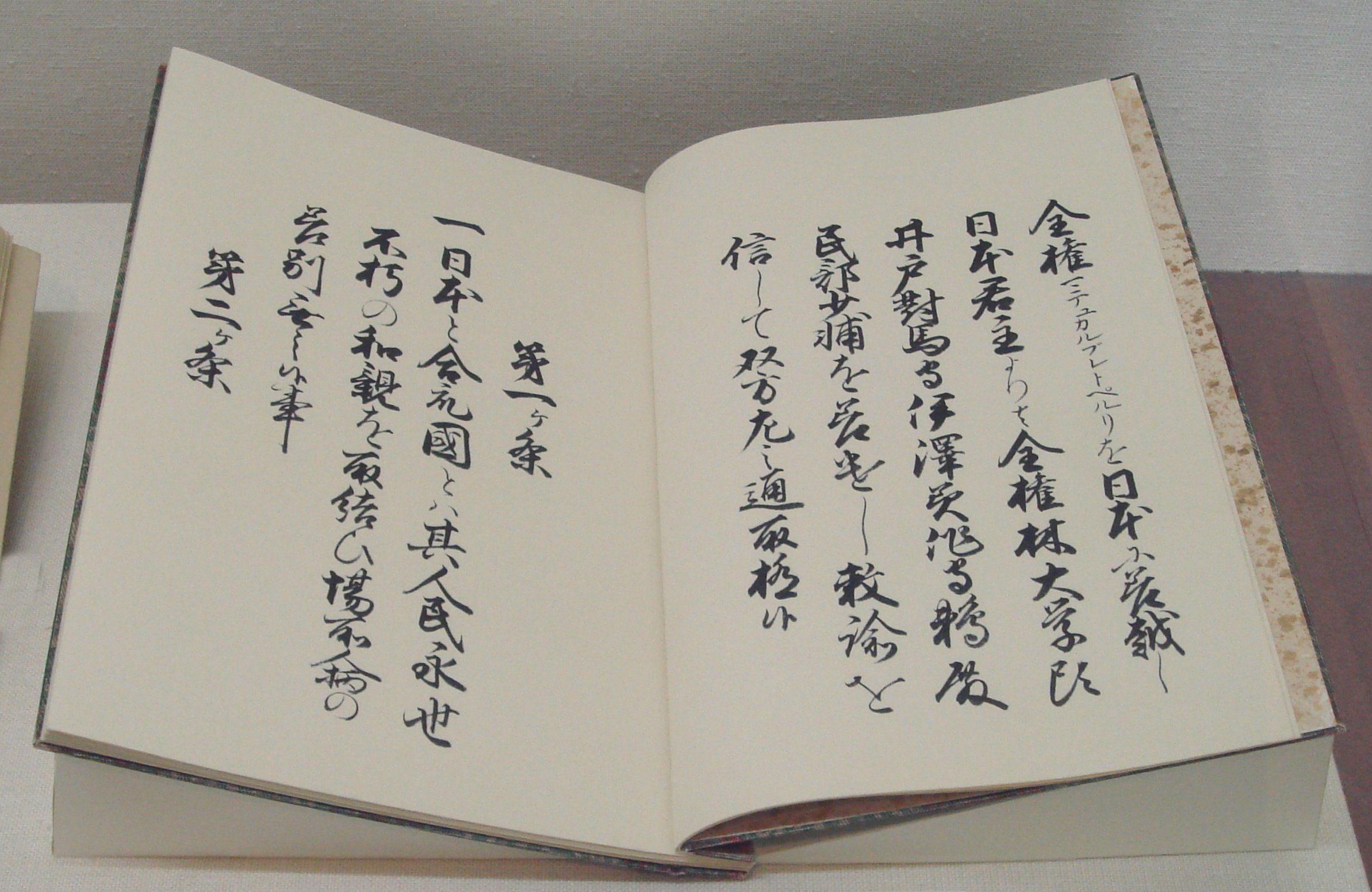Description
The Convention of Kanagawa, also known as the Kanagawa Treaty or the Japan–US Treaty of Peace and Amity , was a treaty signed between the United States and the Tokugawa Shogunate on March 31, 1854. Signed under threat of force, it effectively meant the end of Japan's 220-year-old policy of national seclusion by opening the ports of Shimoda and Hakodate to American vessels. It also ensured the safety of American castaways and established the position of an American consul in Japan. The treaty precipitated the signing of similar treaties establishing diplomatic relations with other Western powers.







